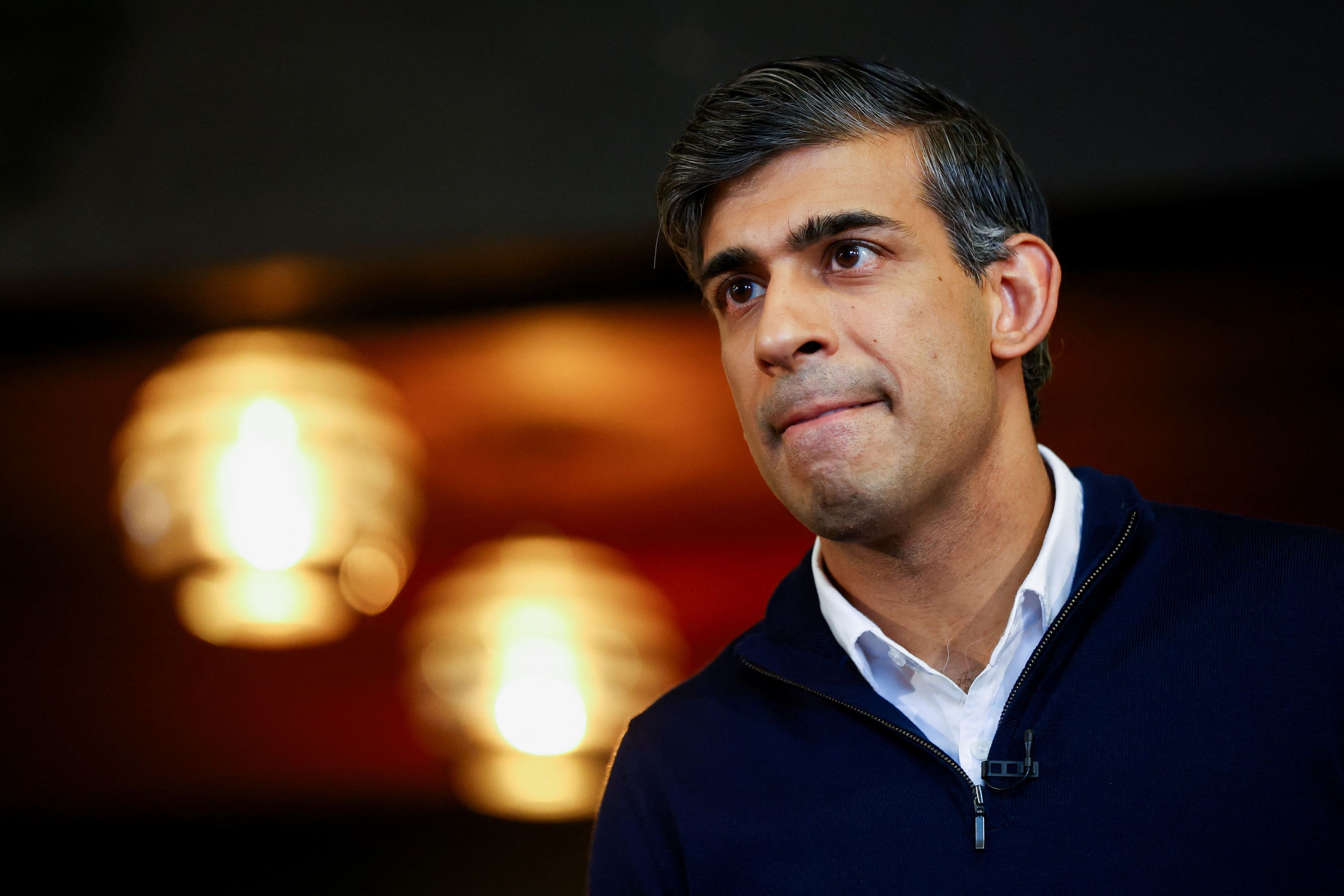Sunak looks to get people off welfare into work to fund future tax cuts
The Prime Minister said a system which signed off three times as many people as a decade ago was not working properly.

Your support helps us to tell the story
From reproductive rights to climate change to Big Tech, The Independent is on the ground when the story is developing. Whether it's investigating the financials of Elon Musk's pro-Trump PAC or producing our latest documentary, 'The A Word', which shines a light on the American women fighting for reproductive rights, we know how important it is to parse out the facts from the messaging.
At such a critical moment in US history, we need reporters on the ground. Your donation allows us to keep sending journalists to speak to both sides of the story.
The Independent is trusted by Americans across the entire political spectrum. And unlike many other quality news outlets, we choose not to lock Americans out of our reporting and analysis with paywalls. We believe quality journalism should be available to everyone, paid for by those who can afford it.
Your support makes all the difference.Scrapping national insurance is set to be a key part of the Tory election offer to voters as Rishi Sunak suggested a squeeze on benefits could help pay for the plan.
The Prime Minister said “significant progress” could be made towards the goal of eliminating the tax during the next parliament if his party remains in power.
Health Secretary Victoria Atkins said she wanted to move from a “sick note” culture to one where a “fit note” would show what work people are able to do.
In a Sunday Times interview, Mr Sunak set out his intention to consult on new plans to reduce working-age benefits “to make sure that we can sustainably keep cutting taxes”.
Chancellor Jeremy Hunt used his Budget to set out a 2p cut in national insurance from April with a vague promise to eventually deliver a simpler tax system by eventually getting rid of it altogether.
We now sign off three times as many people to be out of work than we did a decade ago. That just doesn’t strike me as a system that’s working properly
Mr Sunak stressed his commitment to ending the “unnecessarily complex” system of having both income tax and national insurance contributions (NICs).
“All that money ultimately goes into the same pot to fund public services. So … our long-term ambition is to end that unfairness, to keep cutting NICs until it’s gone, because that is the best way to reward hard work, simplify the tax system and build the kind of society that I think is right,” he said.
The aspiration to end the double taxation of work by scrapping national insurance was attacked as an unfunded promise by Labour, which pointed out it would cost the Exchequer about £46 billion.
Paul Johnson, head of the respected independent Institute for Fiscal Studies think tank, said the pledge was “not worth the paper it’s written on unless accompanied by some sense of how it will be funded”.
Mr Sunak said: “We’ve cut NICs by a third in two events over six months. So, that demonstrates we are delivering and we can go further, though it’s important that we stick to the plan and then we can make significant progress towards that goal in the next parliament.”
A key to funding this pledge could be cutting the welfare bill, which is set to rise from £261.5 billion in 2022-23 to £360.1 billion in 2028-29, according to the Office for Budget Responsibility.
Mr Sunak said: “We now have almost 2.5 million working-age people who have been signed off as unfit to work or even look for work, or think about working, and I don’t think that’s right.
“We now sign off three times as many people to be out of work than we did a decade ago. That just doesn’t strike me as a system that’s working properly.”
Health Secretary Ms Atkins told Sky News’ Sunday Morning with Trevor Phillips: “I’m looking into how we can change the conversation from getting a sick note to getting a fit note.
“So, changing this emphasis that somehow musculoskeletal conditions, for example, which is a very common reason for people being signed off sick, that that means that you can’t do any work whatsoever.
“Because we know not only does work have financial benefits for us, it also is important for our wellbeing, it can help with our mental health, it can help with recovery.”